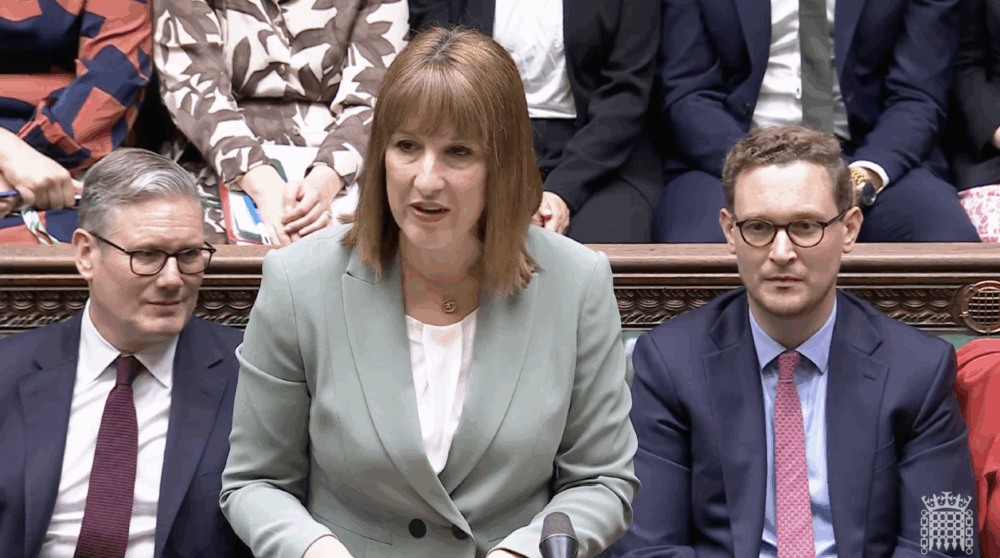The chancellor has promised an additional £1.2 billion “record investment” for skills a year by the end of this parliament – but most of it has already been announced.
Rachel Reeves delivered her spending review today and said this investment would in part support “over a million young people into training and apprenticeships”.
She told MPs that it “cannot be right that too often” the ambitions and potential of young people are “stifled” when those who want training find courses that are “oversubscribed and are turned away at the door”.
“We’ve seen growing businesses eager to recruit, to look elsewhere. Potential wasted and enterprise frustrated,” Reeves added.
“So today I am providing record investment for training and upskilling – £1.2 billion a year by the end of the spending review to support over a million young people into training and apprenticeships so that their potential, their drive and their ambition is frustrated no longer.”
Spending review documents go on to clarify that the government is “providing £1.2 billion of additional investment per year by 2028-29”.
This includes “funding to support over 1.3 million 16 to 19 year olds to access high-quality training, supporting 65,000 additional learners per year by 2028-29”.
It will also deliver £625 million between 2025-26 and 2028-29 to train up to 60,000 skilled construction workers, as announced at spring statement.
FE Week has approached the Treasury for further detail.
There was no mention of adult education funding in the spending review documents, but the government did say it will set out further detail “on its plans in a strategy for post-16 education and skills later in the year”.
Reforms to the SEND system will be set out in a schools white paper in the autumn.
Further education providers in England include 220 colleges and 1,300 independent training providers which currently receive over £12 billion from the government each year to support around 1.9 million learners.
While predicted school pupil numbers are forecast to fall over the next four years, the number of 16 to 19 year olds is set to rise by 118,000.
David Hughes, chief executive of the Association of Colleges, warned the extra funding for more 16 to 19 places “may not” be enough.
He said: “It is positive that Treasury has recognised the growing numbers of young people we estimate will be in post-16 education over the next few years with an increase to the 16 to 19 budget.
“However, the 65,000 extra 16 to 19 places will only just keep up with population growth, so the budget may not be sufficient if the improving participation we have seen in recent years continues.”
DfE efficiencies
The DfE’s overall budget, including capital, will increase by an average 0.8 per cent a year in real terms by the end of the spending review period, from £100.9 billion in 2025-26 to £109.2 billion in 2028-29.
Ofsted will get a £20 million funding boost to help staff inspections under its new report card plans.
But elsewhere in the spending review documents, the Treasury stated that the Department for Education has committed to delivering at least 5 per cent savings and efficiencies.
This includes savings identified through the first zero-based review (ZBR) in 18 years, which includes defunding level 7 apprenticeships for those aged 22 and over.
Documents state that the DfE will work with the FE sector to “improve the value for money of government spend”, by providing FE Commissioner support to colleges and “other relevant providers, seeking opportunities for economies of scale arising from more 16 to 19 year olds moving into post-16 education and training, simplifying processes and reducing data collection burdens, providing greater certainty of capital funding to enable colleges with estate planning, and exploring commercial efficiencies”.
DfE also has worked with the Office for Value for Money to “identify £248 million of technical efficiencies”. These will be a combination of “non-frontline efficiencies” and “corporate initiatives”.
Documents state that DfE will become “smaller and more agile over the spending review period through a strategic workforce plan to improve its capability and operations”.
“This will include moving to more flexible resourcing, greater use of AI and digital tools, conversion of managed services in its digital, data and technology function to permanent civil servants, and reviewing all non-staff expenditure to identify areas for efficiencies”.
Hughes said college leaders will be “relieved” that there are “no more obvious cuts to adult spending“, but will be “disappointed that their biggest challenge of low pay for college staff will not be helped by these announcements”.
Integrated settlements
More mayors will receive funding through integrated settlements in 2026. These are budgets that combine funding sources from different government departments, including adult skills, into one pot, giving mayors more freedom to fund priority projects.
The spending review confirmed that the Greater London Authority and mayoral strategic authorities in West Yorkshire, South Yorkshire, North East and Liverpool City Region will receive integrated settlements from 2026-27.
Combining budgets in this way was part of the government’s devolution white paper, which announced the mayors of Greater Manchester and the West Midlands would be the first “trailblazers” to get the integrated settlements for 2025-26.















Your thoughts